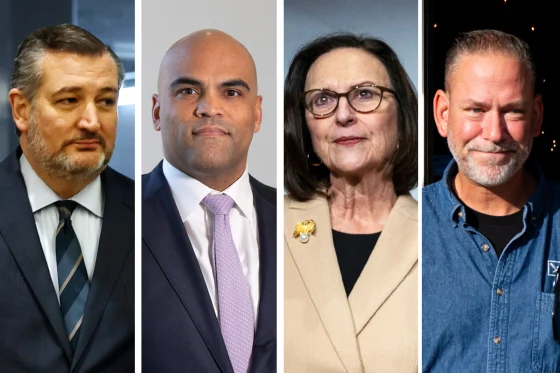redo Jump to...
print Print...
 (by Jimmy Lovaas, Reuters) SEATTLE – The Seattle city council voted unanimously on Monday, June 2, to approve a sharp increase in the city’s minimum wage to $15 an hour over the next seven years, marking the first time a major U.S. city has committed to such a high base level of pay.
(by Jimmy Lovaas, Reuters) SEATTLE – The Seattle city council voted unanimously on Monday, June 2, to approve a sharp increase in the city’s minimum wage to $15 an hour over the next seven years, marking the first time a major U.S. city has committed to such a high base level of pay.
A business group immediately announced plans to sue to try to prevent the wage increase from going into effect.
Under the terms of the plan, businesses with fewer than 500 workers must raise wages to the $15 mark in the next seven years, an increase of more than 60 percent from Seattle’s current minimum wage of $9.32 an hour. Larger businesses must meet that level within three years, or four if they provide health insurance.

Socialist Seattle City Council member Kshama Sawant (AP photo)
“We have worked alongside organized labor [unions] in Seattle who have campaigned vigorously for $15 (an hour),” said socialist council member Kshama Sawant, a supporter of the measure.
“We forced the establishment to lift the wages of 100,000 low-wage workers in Seattle, to transfer $3 billion from business to workers at the bottom of the pay scale over the next 10 years. We did it. Workers did it,” Sawant said.
The plan is a product of a committee convened by Democratic Seattle Mayor Ed Murray, including labor and business leaders, that spent 16 weeks negotiating a compromise deal.
The long lead-in time for implementation of the Seattle wage measure appears in part a compromise to placate businesses that had wanted to count tips and employer contributions for healthcare benefits toward the wage target.
The International Franchise Association, a Washington, D.C.- based trade organization, said it would sue to stop the wage increase from taking effect, calling it unfair to businesses run as franchises.
“The Seattle City Council and Mayor Murray’s plan would force the 600 franchisees in Seattle, which own 1,700 franchise locations employing 19,000 workers, to adopt the full $15 minimum wage in 3 years, while most other small business owners would have seven years to adopt the $15 wage,” the group’s president, Steve Caldeira, said in a statement.
“These hundreds of franchise small business owners are being punished simply because they chose to operate as franchisees. Decades of legal precedent have held that franchise businesses are independently owned businesses and are not operated by the brand’s corporate headquarters.”
Seattle is among several cities leading the way in a national push by Democrats to raise minimum wages. The Seattle suburb of SeaTac approved an initiative last year enacting a $15 minimum wage for many workers, although airport employees were later excluded.
President Barack Obama has pushed Congress to raise the federal minimum wage to $10.10 an hour from $7.25, but has failed to win the backing of the Republican-controlled U.S. House of Representatives.
Proposals to raise the minimum wage have been considered in nearly three dozen states in 2014, according to the National Conference of State Legislatures.
Reprinted here for educational purposes only. May not be reproduced on other websites without permission from Thomson Reuters. Visit the website at Reuters .com.
Questions
NOTE: “Answers” emails have ended for the school year and will resume September 2nd.
Daily posting will end for the summer on June 13th and will resume August 25th.
1. The first paragraph of a news article should answer the questions who, what, where and when. List the who, what, where and when of this news item. (NOTE: The remainder of a news article provides details on the why and/or how.)
2. What is significant about the Seattle city council’s vote?
3. What specifically does the new rule require?
4. a) Which political party wants the government to increase the minimum wage for entry-level employees?
b) Which party does not support government increasing the minimum wage?
5. What did socialist city council member Kshama Sawant say of the mandate? (see para. 4-5)
b) Ask a parent the following: Who is the “establishment”? Was it good for the government to force business owners to increase wages for their employees? Will there be any adverse economic results to Seattle?
6. a) Suppose you are a supervisor making $15/hour in Seattle right now. When all of the employees you supervise are required to make $15/hour also, how will you feel? Will the business be forced to raise all employees salaries? How will this impact the profitability of the business?
b) In addition to increasing actual salary costs, this will also increase the employer’s payroll taxes (which are based on what the employee earns). How will the increase in minimum wage salaries, as well as resulting increase in other employees’ salaries and increased payroll taxes impact small and large businesses’ bottom line? Will they pass these added expenses on to the customer by increasing prices? If not, where will the additional cost come from?
7. Understanding both sides of this issue is necessary before forming your own opinion. Most media reports favor the Democratic position (raising the minimum wage will help families – can’t raise a family on minimum wage, it will help women, it will help the economy). The position opposing a government mandated increase is not as often explained in the media. To gain an understanding of both sides, watch the video under “Resources” below and read the commentaries.
a) List the reasons for and against the government mandating a higher minimum wage.
b) Think about the reasons people have for opposing or supporting government mandated increases. With which position do you agree? (Who has the stronger argument?) Explain your answer.
c) Ask a parent if he/she thinks raising the minimum wage will have a positive or negative impact on the economy (or no impact either way) and to explain why he/she thinks so.
Background
From libertarian economist Thomas Sowell’s commentary “Minimum Wage Madness””
- One of the simplest and most fundamental economic principles is that people tend to buy more when the price is lower and less when the price is higher. Yet advocates of minimum wage laws seem to think that the government can raise the price of labor without reducing the amount of labor that will be hired.
- When you turn from economic principles to hard facts, the case against minimum wage laws is even stronger. Countries with minimum wage laws almost invariably have higher rates of unemployment than countries without minimum wage laws.
- Most nations today have minimum wage laws, but they have not always had them. Unemployment rates have been very much lower in places and times when there were no minimum wage laws.
From socialist city council member Kshama Sawant, who voted for the $15 mandated minimum wage:
- “We have worked alongside organized labor [unions] in Seattle who have campaigned vigorously for $15 (an hour). We forced the establishment to lift the wages of 100,000 low-wage workers in Seattle, to transfer $3 billion from business to workers at the bottom of the pay scale over the next 10 years. We did it. Workers did it.”
From CATO Institute:
The minimum wage redistributes a given economic pie, it doesn’t enlarge it. The only way to “drive the economy” is to raise productivity, not the minimum wage. The key factors that improve real economic growth—and lead to a higher standard of living—are institutional changes that safeguard persons and property, lower the costs of doing business, and encourage entrepreneurship.
When New York State increased its minimum wage by 31 percent (from $5.15 an hour to $6.75) in 2004–06, the number of jobs open to younger, less-educated workers decreased by more than 20 percent, as Sabia, Richard Burkhauser, and Benjamin Hansen found in a landmark study published in the Industrial and Labor Relations Review in 2012.
In another study, Sabia and Burkhauser found “no evidence that minimum wage increases between 2003 and 2007 lowered state poverty rates” (Southern Economic Journal, January 2010). Those workers most apt to lose their jobs as a result of a higher minimum wage are from low-income households. Hence, an increase in the minimum wage can actually increase poverty. As David Neumark, Mark Schweitzer, and William Wascher noted in the Journal of Human Resources (2005), “The net effect of higher minimum wages is … to increase the proportion of families that are poor and near-poor.”
Proponents of the higher minimum wage downplay those adverse consequences and point to widespread public support—and politicians like nothing better than polls to guide their agendas. The public supports higher minimum wages because they haven’t thought about the longer-run consequences. Most polls simply ask, “Are you in favor of a higher minimum wage?” without saying anything about the loss of jobs and unemployment that will occur. When those costs are taken into account the majority swings against an increase in the minimum wage, as shown by Emily Ekins.
When legislators mandate a minimum wage above the market wage determined by demand and supply they deprive workers and employers of the freedom of contract that lays at the heart of a dynamic market economy. The wealth of a nation is not enhanced by prohibitions on free trade—whether in product, labor, or capital markets. People should be free to choose and improve. If low-skilled workers can’t find a job at the minimum wage, they won’t have the opportunity to fully develop themselves and move up the income ladder.
Groups that are pushing for a higher minimum wage may have good intentions but they discount—or fail to understand—the longer-run adverse effects of that legislation on freedom and prosperity. They only look at those who may benefit from a higher minimum wage, including union members, while downplaying the inevitable shift to labor-saving technology that will occur over time and the jobs that will never be created.
A young worker with little education and few job skills who is willing to work at less than the minimum wage to get a job and gain experience is prevented from doing so.
Instead of solidarity, minimum wage proponents create dissent when workers find that prosperity cannot be created by a stroke of the legislation pen. Politicians may promise a higher wage rate to low-skilled workers but for those workers who lose their jobs, their incomes will be zero.
[Increasing the minimum wage] is the wrong medicine for improving the plight of low-income families and creating a prosperous nation. Poverty is not abolished by legislative fiat.Daily “Answers” emails are provided for Daily News Articles, Tuesday’s World Events and Friday’s News Quiz.


